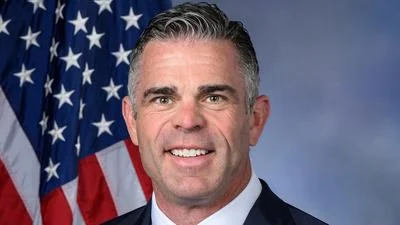Shae Alan Sortwell, Wisconsin State Representative for 2nd District | Official Website
Shae Alan Sortwell, Wisconsin State Representative for 2nd District | Official Website
According to the Wisconsin State Legislature's official website, the bill was described as follows: "imposing the penalty of life imprisonment for the crime of child trafficking and providing a penalty. (FE)".
The following is our breakdown, based on the actual bill text, and may include interpretation to clarify its provisions.
In essence, this bill amends Wisconsin statutes to impose harsher penalties for child trafficking offenses. Specifically, it increases the crime's penalty from a Class C felony to a Class A felony if the act involves at least three child victims, resulting in a life sentence without the possibility of extended supervision. It changes current law by prohibiting any person convicted of such an aggravated child trafficking offense from being eligible for parole or work release. The bill mandates that life sentences for these crimes exclude the possibility of release under extended supervision, aiming to increase deterrence and punishment severity for multi-victim child trafficking offenses. The bill applies to offenses committed on its effective date.
The bill was co-authored by Senator André Jacque (Republican-1st District), Representative Clinton M. Anderson (Democrat-45th District), Representative Elijah R. Behnke (Republican-6th District), Representative Joy L. Goeben (Republican-5th District), Representative Rick Gundrum (Republican-58th District).
Shae A. Sortwell has co-authored or authored another 16 bills since the beginning of the 2025 session, with none of them being enacted.
Sortwell graduated from the University of Wisconsin-Green Bay in 2006 with a BA.
Sortwell, a Republican, was elected to the Wisconsin State Assembly in 2019 to represent the state's 2nd Assembly district, replacing previous state representative André Jacque.
In Wisconsin, the legislative process starts when a senator, constituent, group, or agency proposes an idea for a bill. After drafting, the bill is introduced, numbered, and referred to a committee for review and public input. If approved, it moves through three readings and votes in both the Senate and Assembly. Once both chambers pass the same version, the bill goes to the governor, who can sign it, veto it, or let it become law without a signature. Only a small share of bills introduced each session ultimately become law. You can learn more about the Wisconsin legislative process here.
| Bill Number | Date Introduced | Short Description |
|---|---|---|
| AB86 | 02/28/2025 | Imposing the penalty of life imprisonment for the crime of child trafficking and providing a penalty. (FE) |
| AB42 | 02/17/2025 | Local regulation of fowl |
| AB41 | 02/17/2025 | Local regulation of vegetable gardens |
| AB26 | 02/17/2025 | Battery or threat to jurors and providing a penalty |
| AB17 | 02/06/2025 | Creating an employee ownership conversion costs tax credit, a deduction for capital gains from the transfer of a business to employee ownership, and an employee ownership education and outreach program. (FE) |






 Alerts Sign-up
Alerts Sign-up